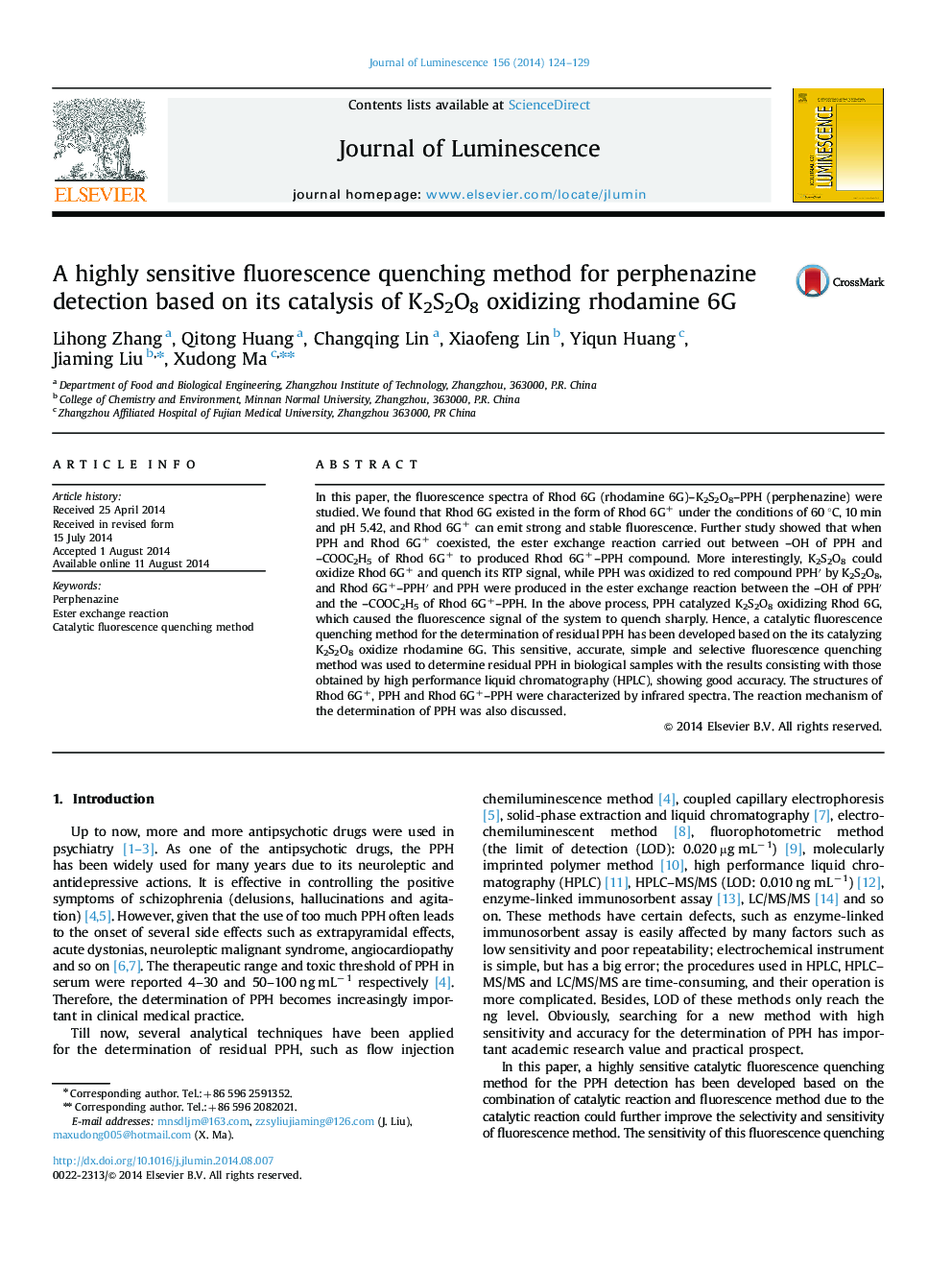| Article ID | Journal | Published Year | Pages | File Type |
|---|---|---|---|---|
| 5399848 | Journal of Luminescence | 2014 | 6 Pages |
Abstract
In this paper, the fluorescence spectra of Rhod 6G (rhodamine 6G)-K2S2O8-PPH (perphenazine) were studied. We found that Rhod 6G existed in the form of Rhod 6G+ under the conditions of 60 °C, 10 min and pH 5.42, and Rhod 6G+ can emit strong and stable fluorescence. Further study showed that when PPH and Rhod 6G+ coexisted, the ester exchange reaction carried out between OH of PPH and COOC2H5 of Rhod 6G+ to produced Rhod 6G+-PPH compound. More interestingly, K2S2O8 could oxidize Rhod 6G+ and quench its RTP signal, while PPH was oxidized to red compound PPHⲠby K2S2O8, and Rhod 6G+-PPHⲠand PPH were produced in the ester exchange reaction between the OH of PPHⲠand the COOC2H5 of Rhod 6G+-PPH. In the above process, PPH catalyzed K2S2O8 oxidizing Rhod 6G, which caused the fluorescence signal of the system to quench sharply. Hence, a catalytic fluorescence quenching method for the determination of residual PPH has been developed based on the its catalyzing K2S2O8 oxidize rhodamine 6G. This sensitive, accurate, simple and selective fluorescence quenching method was used to determine residual PPH in biological samples with the results consisting with those obtained by high performance liquid chromatography (HPLC), showing good accuracy. The structures of Rhod 6G+, PPH and Rhod 6G+-PPH were characterized by infrared spectra. The reaction mechanism of the determination of PPH was also discussed.
Keywords
Related Topics
Physical Sciences and Engineering
Chemistry
Physical and Theoretical Chemistry
Authors
Lihong Zhang, Qitong Huang, Changqing Lin, Xiaofeng Lin, Yiqun Huang, Jiaming Liu, Xudong Ma,
